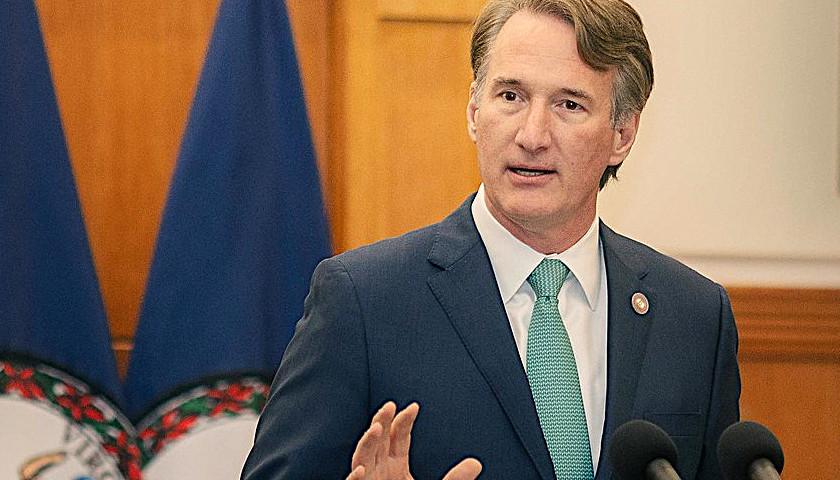by Madison Hirneisen
For the tens of thousands of Virginians whose guardianship case is served by a private guardian, existing law dictating how often their guardian is required to visit them is vague.
A bill that passed the General Assembly on a bipartisan basis this session aims to change that.
As of fiscal year 2020, 12,000 people were under guardianship in Virginia. When someone is placed under a guardianship or conservatorship by a court, some or all of their rights are legally removed and another individual – such as a family member, friend, professional guardian or attorney – controls their affairs.
The majority of adults under guardianship in Virginia are served by private guardians, who do not have any specific standards on how often they must visit the incapacitated adult under guardianship. Existing law simply states guardians “shall visit the incapacitated person as often as necessary.”
That could soon change if legislation brought forth this session by Del. Danica Roem, D-Manassas Park, is signed into law.
Roem’s bill states that a guardian must visit the “incapacitated person” under guardianship at least three times per year, with at least one visit occurring every 120 days. The measure specifies one of the visits must be in person, another visit can be conducted through a virtual call and the third can be conducted over video conference by someone other than the guardian, a family member, friend or skilled professional retained by the guardian to perform guardianship duties.
The bill did not have any budgetary implications, according to a fiscal impact statement from the Department of Planning and Budget.
In an interview with The Center Square, Roem described the legislation that passed to the governor as a “genuine compromise,” noting the bill took several forms as it wove through the legislature when stakeholder groups, including hospital associations and private guardians, weighed in.
In the original version of the bill, Roem proposed four visits per year at least every 90 days, with at least two of the visits conducted in person. That requirement was met with pushback from some stakeholders, who wanted the bill to require two visits per year. Three visits ended up being the compromise, according to Roem.
“We compromised on the compromise on the compromise,” Roem said, adding that despite these compromises, lawmakers in the General Assembly understood that “the current system is broken.”
“The General Assembly understood fundamentally, Democrats and Republicans alike this year, that the current system is fundamentally flawed and is not sustainable as it is,” Roem said. “We have to do something because when we don’t do something, people die. That’s not hyperbole, that’s not me flapping my gums or anything – that’s real life. When the guardianship system fails, people get hurt, people die. Incapacitated adults are the single most vulnerable people in American society.”
Roem’s bill was inspired by recommendations in a 2021 Joint Legislative Audit and Review Commission report, which outlined ways to improve Virginia’s adult guardianship and conservator system. The report came after an investigative series by the Richmond Times-Dispatch revealed failures in the state’s guardianship system that left individuals unprotected.
The JLARC report found the majority of guardianships in the state are private guardianships, meaning a family, friend or attorney is appointed to serve as guardian. Of the 12,000 adults under guardianship, the vast majority – about 11,000 – are served by a private guardian, according to the JLARC report.
Unlike public guardians – who are required to visit individuals under their guardianship each month – private guardians are not subject to any visitation or training requirements and do not have set limits on caseloads, JLARC found.
“What you end up with is guardians, often those with a really large caseload – a lot of people under their guardianship – make few or no visits to the adults they serve,” Joe McMahon, a chief legislative analyst at JLARC, told The Center Square. “They basically have them in assisted living or a nursing home, and that’s that. But what we found was visitation is a really important element to ensure the guardian is providing adequate service.”
McMahon said through visitation, guardian’s can check on an individual’s condition, understand whether the current arrangement is meeting their needs, talk with caretakers, get to know the adult’s preferences and wants, and in some cases, “get a better sense of whether that person’s condition is progressing to a point where their rights could be restored.”
“A key part of being a good guardian is incorporating the adult into the decision making process as much as possible,” McMahon wrote in an email.
A look at other reform bills sent to the governor
Roem’s bill, HB 2028, was among several measures surrounding guardianship reform sent by the General Assembly to Gov. Glenn Youngkin’s desk. The delegate also authored HB 2027, which outlines clearer guidance on setting visitation restrictions.
Under HB 2027, guardians cannot restrict an incapacitated person’s ability to communicate with people they have a relationship with – like friends or family – unless the restriction would “prevent physical, mental, or emotional harm to or financial exploitation of such incapacitated person.”
The measure addresses three recommendations in the JLARC report, which stem from a finding in the report that states “guardians have too much discretion to restrict contact with adults under their guardianship.”
Current law directs guardians to not “unreasonably restrict” any communication, visitation or interaction between friends and family – a standard the JLARC report labeled as “overly broad” and “vague.” The JLARC report concluded the existing standard “enables guardians to unjustifiably restrict contact between an adult and their family members or other individuals who may be able to contribute to the adult’s care and well-being.”
McMahon, from JLARC, said HB 2027 “better defines” when guardians can set visitation restrictions and sets up a process to do so.
Another bill advanced this legislative session, Senate Bill 987, would require courts starting this July to set a schedule for periodic review hearings, specifying that a review hearing should be conducted one year after guardian appointment and once every three years thereafter.
The bill also specifies any periodic review hearings should include certain assessments by the court, including: the likelihood the condition of the person under a guardianship will improve, whether concerns about the “suitability” of the person appointed guardian were raised at the time of appointment, and whether the appointment of the guardian was contested by the respondent or another party.
JLARC staff found that as it currently stands, a guardianship appointment tends to be a lifetime appointment even though the conditions of an adult under guardianship can change over time. McMahon said JLARC staff found that one of the best ways to improve oversight and accountability for guardians was to have the guardianship case go before a court periodically.
The General Assembly also passed a pair of identical bills that will make it easier for a guardian ad litem – a court-appointed investigator that acts as a key source of information judges use to make decisions on guardianship – to obtain reports that would be relevant to a guardianship or conservatorship proceeding. The bills specify that any health care providers, local school divisions, department of social services, financial institutions and a criminal justice agency would be required to provide records to a guardian ad litem when requested.
Youngkin has an action deadline of next Monday to act on each of these bills advanced by the General Assembly.
Future action on the horizon
While the General Assembly made progress this year on several recommendations contained in the JLARC report, roughly a dozen recommendations directed to the General Assembly remain.
McMahon said the legislation brought forth and passed this year “was a big step forward towards addressing some of the findings or recommendations from that report.”
Roem echoed a similar sentiment, saying this legislative session marked “the single most consequential year we’ve had for guardianship reform in Virginia in a very long time.” The delegate, who is running to represent Senate District 30 on the ballot this fall, added that she’s not finished yet.
“There’s no way I’m going to step away from guardianship reform as one of my main topics,” Roem said. “It’s too important of an issue to just like, be happy with a couple, you know big changes, but just a handful of changes.”
Roem did not commit to a particular bill she would introduce next session, but said it’s “highly likely” she will be revisiting legislation pertaining to training for guardians. A bill introduced in the House by Roem this session and a companion measure introduced by Sen. Jeremy McPike, D-Prince William, would have directed the Department of Aging and Rehabilitation Services to develop training for court-appointed guardians by July 1, 2024.
The measure was estimated to cost $160,000 in fiscal year 2024 and $122,000 annually thereafter. Both the House and Senate versions of the bill were ultimately tabled in the House Appropriations committee.
– – –
Madison Hirneisen is a staff reporter covering Virginia and Maryland for The Center Square. Madison previously covered California for The Center Square out of Los Angeles, but recently relocated to the DC area. Her reporting has appeared in several community newspapers and The Washington Times.
Photo “Danica Roem” by Danica Roem – Virginia Delegate. Background Photo “Virginia Capitol” by Skip Plitt. CC BY-SA 3.0.





